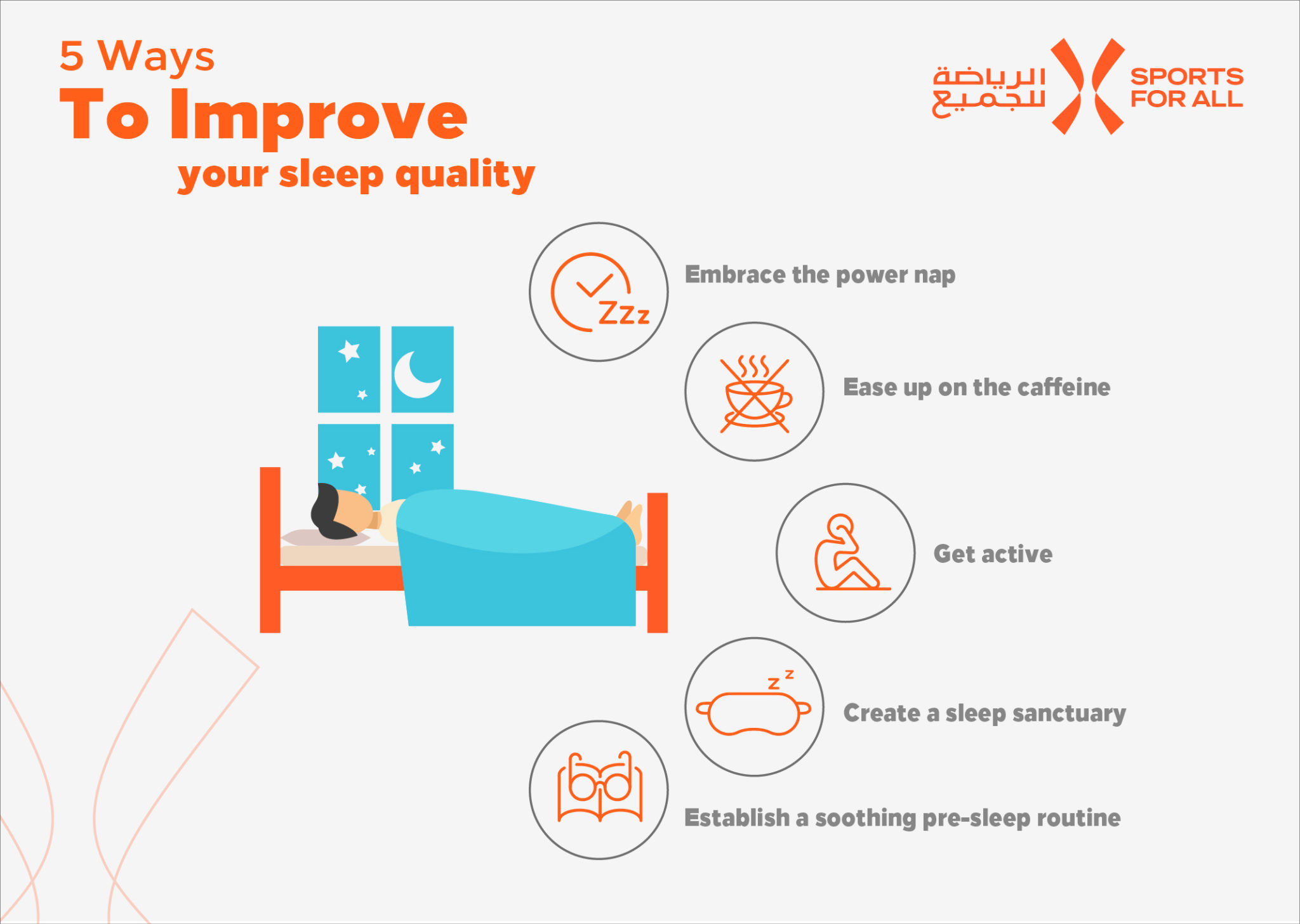Tips for improving sleep quality include establishing a consistent sleep schedule and creating a comfortable sleep environment. A good night’s sleep is essential for our overall well-being and productivity.
Unfortunately, many people struggle with sleep issues that can negatively impact their quality of life. If you’re looking to improve your sleep quality, there are a few simple tips that can make a big difference. We will explore some effective strategies to help you achieve a rejuvenating and restful sleep.
By implementing these tips, you can wake up feeling refreshed and ready to take on the day. So, let’s get started and discover how you can improve your sleep quality.

Credit: www.somnologymd.com
Understanding The Importance Of Sleep
Improving the quality of your sleep is essential for overall well-being. Discover effective tips for getting better sleep and experience the benefits of a good night’s rest.
The Role Of Sleep In Overall Health
Adequate sleep plays a critical role in promoting overall health and well-being. When we sleep, our bodies undergo important restorative processes that are essential for optimal physical, mental, and emotional functioning. Sleep is not just a time for the body to rest; it is also a crucial period for the brain to consolidate memories, regulate emotions, and recharge for the day ahead.
Poor sleep can lead to a wide range of health issues, including decreased cognitive function, weakened immune system, heightened stress levels, and increased risk of chronic conditions like diabetes, obesity, and cardiovascular diseases. Studies have shown that individuals who consistently get less sleep are more prone to mood disorders, such as anxiety and depression, and are at a higher risk of accidents and injuries.
Ensuring quality sleep is vital for maintaining optimal health and improving overall quality of life. By understanding the importance of sleep, we can take necessary steps towards creating an environment conducive to restful and rejuvenating sleep.
Common Causes Of Poor Sleep
There are various factors that can disrupt our sleep patterns and contribute to poor sleep quality. Some common causes include:
- Stress and anxiety: Racing thoughts and worries can make it difficult to fall asleep and stay asleep throughout the night.
- Poor sleep environment: Uncomfortable bedding, excessive noise, bright lights, and improper temperature can all affect our ability to sleep soundly.
- Irregular sleep schedule: Inconsistent bedtimes and wake-up times can disrupt the body’s internal clock, resulting in poor sleep.
- Diet and lifestyle choices: Consumption of caffeine, nicotine, and alcohol close to bedtime can interfere with sleep. Additionally, lack of exercise and an unhealthy diet can negatively impact sleep quality.
- Medical conditions and medication: Certain medical conditions, like sleep apnea and chronic pain, as well as certain medications, can disrupt sleep patterns.
Identifying and addressing these common causes of poor sleep is crucial for optimizing sleep quality and promoting overall well-being.
Creating A Sleep-friendly Environment
Creating a sleep-friendly environment is essential for improving sleep quality. From investing in a comfortable mattress to minimizing noise and light distractions, small changes can make a big difference in ensuring a good night’s rest.
Creating a Sleep-Friendly Environment
Creating an ideal sleeping environment is essential for getting a good night’s rest. By optimizing bedroom conditions, reducing noise and distractions, and choosing the right bedding and mattress, you can improve your sleep quality significantly. Let’s explore each aspect in more detail:Optimizing bedroom conditions
• Keep your bedroom cool, ideally around 65°F to 70°F, as a cooler temperature promotes better sleep. • Make sure your room is dark by installing blackout curtains or using eye masks to block out any light that may disrupt your sleep. • Opt for soft lighting, like a warm-toned lamp, to create a soothing ambiance before bedtime. • Ensure proper ventilation and fresh air circulation in your bedroom by opening the windows or using a fan.Reducing noise and distractions
• Minimize noise by using earplugs or playing white noise in the background to drown out any disruptive sounds. • Turn off electronic devices or at least put them on silent mode to eliminate distractions and prevent sleep disturbances. • Invest in a good-quality set of curtains, blinds, or soundproofing materials to reduce noise coming from outside sources. • If you live in a noisy area, consider using a white noise machine or a fan to create a consistent background noise that can help you fall asleep and stay asleep.Choosing the right bedding and mattress
• Select a comfortable and supportive mattress that suits your sleeping preferences – whether you prefer a firmer or softer feel. • Invest in high-quality bedding materials, such as organic cotton sheets and pillowcases, for a soft and breathable sleep surface. • Use hypoallergenic pillows and mattress covers to reduce the risk of allergic reactions that can disrupt your sleep. • Replace your pillows regularly, as they can accumulate dust mites and lose their shape, which can affect your sleep quality. Incorporating these tips into your sleep routine can help you create a sleep-friendly environment that promotes better rest and rejuvenation. By optimizing your bedroom conditions, reducing noise and distractions, and choosing the right bedding and mattress, you can enhance the quality of your sleep, leading to improved overall well-being. Good night and sweet dreams!Developing Healthy Sleep Habits
Improve your sleep quality with these helpful tips for developing healthy sleep habits. By implementing these strategies, you can create a routine that promotes restful sleep and overall well-being.
Developing Healthy Sleep Habits is crucial for achieving high-quality sleep and promoting overall well-being. By establishing a consistent sleep schedule, creating a relaxing pre-sleep routine, and avoiding stimulants and electronics before bedtime, you can improve the quantity and quality of your sleep.Establishing A Consistent Sleep Schedule
Maintaining a regular sleep schedule is key to regulating your body’s internal clock, also known as the circadian rhythm. Aim to go to bed and wake up at the same time every day, even on weekends. This regularity helps synchronize your sleep patterns, making it easier to fall asleep and wake up feeling refreshed.Creating A Relaxing Pre-sleep Routine
Before bed, engaging in calming activities can signal your body and mind that it’s time to wind down. Consider establishing a pre-sleep routine that incorporates relaxation techniques such as reading a book, listening to soothing music, or taking a warm bath. These activities can promote relaxation and prepare your body for sleep.Avoiding Stimulants And Electronics Before Bedtime
Stimulants such as caffeine, nicotine, and alcohol can disrupt sleep patterns and make it difficult to fall asleep. Limit your consumption of these substances, especially in the hours leading up to bedtime. Additionally, the blue light emitted by electronic devices, such as smartphones and laptops, can interfere with your body’s production of melatonin, a hormone that promotes sleep. To optimize your sleep quality, avoid using these devices for at least an hour before bed. By adhering to these healthy sleep habits, you can enhance your sleep quality and wake up feeling more rested and refreshed. Making consistent sleep schedules, establishing relaxing pre-sleep routines, and avoiding stimulants and electronics before bedtime are simple but effective steps towards enjoying a restful night’s sleep.:max_bytes(150000):strip_icc()/how-to-get-better-sleep-5094084-regular-FINAL-2c371001cada4ad391f6de53fc6053c9.png)
Credit: www.verywellmind.com

Credit: saatwika.in
Frequently Asked Questions Of Tips For Improving Sleep Quality
What Is The 10 3 2 1 0 Rule For Sleep?
The 10 3 2 1 0 rule for sleep is a guideline to improve sleep quality. It suggests the following: 10 hours before bed, avoid caffeine; 3 hours before bed, avoid large meals; 2 hours before bed, avoid screens; 1 hour before bed, do something relaxing; and 0, set a regular sleep routine.
How Can I Get Enough High Quality Sleep?
To get enough high-quality sleep, follow these guidelines: 1. Stick to a consistent sleep schedule. 2. Create a relaxing bedtime routine. 3. Make your sleep environment comfortable and dark. 4. Limit caffeine and electronic device use before bed. 5. Engage in regular exercise during the day.
How Long Does It Take To Improve Sleep Quality?
Improving sleep quality varies for each individual and depends on several factors such as sleep disorders, lifestyle changes, and medical conditions. It can take a few weeks to months to see significant improvements in sleep quality. Remember to practice good sleep hygiene and consult a healthcare professional for personalized guidance.
What Is The Key To Quality Sleep?
The key to quality sleep lies in following a consistent sleep schedule, creating a comfortable sleep environment, avoiding caffeine and electronics before bed, practicing relaxation techniques, and managing stress levels.
Conclusion
Incorporating these tips into your daily routine can greatly improve your sleep quality. From creating a relaxing bedtime routine to optimizing your sleep environment, small changes can lead to big improvements. Remember to prioritize regular exercise, limit caffeine intake, and manage stress levels for a well-rested night’s sleep.
By implementing these strategies, you’ll be on your way to waking up refreshed and recharged every morning. Sweet dreams!
